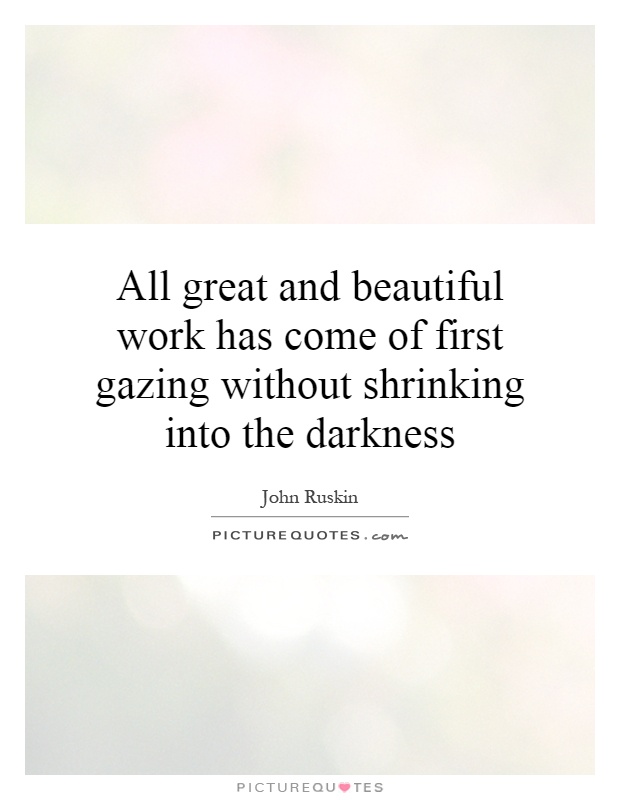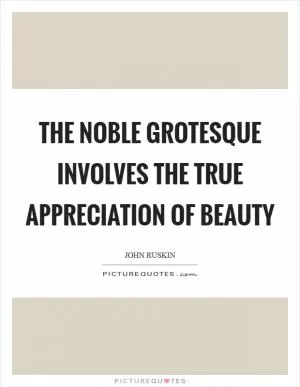All great and beautiful work has come of first gazing without shrinking into the darkness

All great and beautiful work has come of first gazing without shrinking into the darkness
John Ruskin, a prominent English art critic and social thinker of the 19th century, believed that all great and beautiful work comes from first gazing without shrinking into the darkness. This statement reflects Ruskin's belief in the importance of confronting and embracing the darker aspects of life in order to create meaningful and impactful art.Ruskin was known for his keen observations of nature and his ability to capture its beauty in his writings and drawings. He believed that in order to truly appreciate and understand the beauty of the world, one must also acknowledge the darkness and suffering that exists alongside it. By confronting the darkness, one can gain a deeper understanding of the complexities of life and create art that is both powerful and authentic.
Ruskin's own work often delved into themes of social injustice, environmental degradation, and the human condition. He was a vocal critic of the industrial revolution and its impact on society and the environment. Ruskin believed that by shining a light on the darker aspects of society, artists could inspire change and create a more just and compassionate world.
In his book "Modern Painters," Ruskin argued that true art should reflect the beauty and truth of nature, rather than simply imitating it. He believed that by gazing into the darkness and confronting the harsh realities of life, artists could create work that was both aesthetically pleasing and morally significant.
Ruskin's philosophy of embracing the darkness in order to create great and beautiful work is a powerful reminder of the importance of honesty and authenticity in art. By acknowledging the darker aspects of life, artists can create work that is not only visually stunning, but also emotionally resonant and socially relevant.












 Friendship Quotes
Friendship Quotes Love Quotes
Love Quotes Life Quotes
Life Quotes Funny Quotes
Funny Quotes Motivational Quotes
Motivational Quotes Inspirational Quotes
Inspirational Quotes